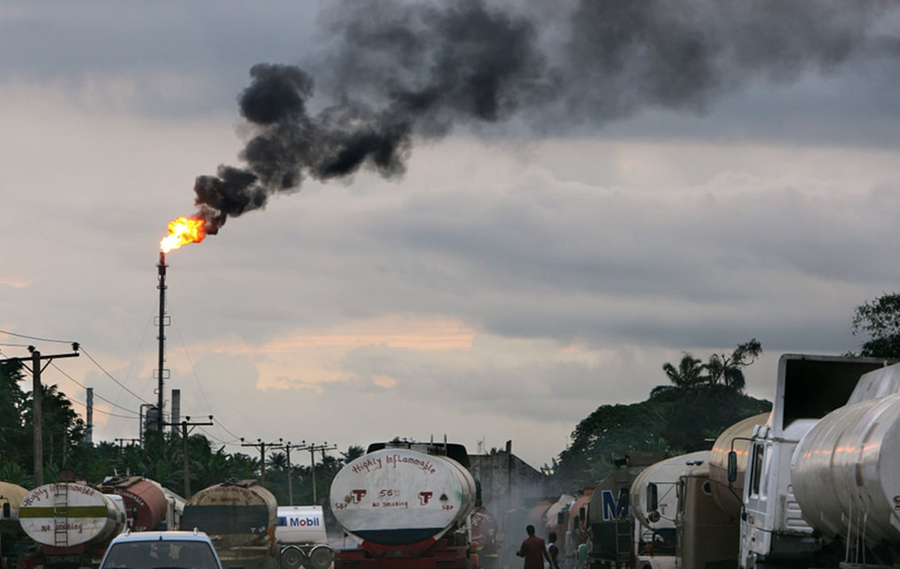A recent study by the Stakeholder Democracy Network (SDN) revealed that black market fuel refined in the creeks of the Niger Delta tends to have higher quality than the legally imported petrol and diesel imported into Nigeria from Europe.
Even though Nigeria has the capacity to pump over 2 million barrels a day of high grade “Bonny Light” crude, Nigeria’s refining capacity has been heavily reduced to nothing due to the dysfunctional state of four of Nigeria’s refineries which are managed by the Nigeria National Petroleum Corporation, NNPC.
In the meantime, the importation of petroleum products has remained a major financial burden to Nigeria, even as the NNPC continues to spend billions of naira to maintain the loss-making refineries.
Note that Nigeria imports about 900,000 tons of low-grade European fuel mainly refined in Belgium and Netherlands which has led to horrible air pollution in Nigeria’s major cities.
The report found out that the fuel imported by Nigeria surpassed EU pollution limit for gasoline by over 43 times.
READ MORE: Analysis: Seplat’s transfer of OMLs has us wary
The SDN found out the fuel imported by Nigeria can’t even be sold to countries with higher environmental standards and of lower grade than illegally refined crude in the Niger delta.
Nigeria is ranked Number 4 globally in deaths related to air pollution, about 114,000 Nigerians die every year from respiratory diseases due to air pollution.
READ ALSO: CBN to offer Niger Delta rice farmers single-digit loan
Nigerian cities like Port Harcourt have been dealing with a black soot problem for the past couple of years now due to Gas- Flaring and illegal oil refining issues in nearby communities.
The illegal refineries now produce up to 20% of fuel consumed in Nigeria, according to the report.
The report outline that with the outbreak of the COVID-19 which attacks the respiratory organs, the high levels of pollution pose a threat to the health of Nigerians especially in the Niger delta regions and other heavily polluted areas.
READ ALSO: Dangote discloses fuel delivery channels, refinery to explore European and American markets
In 2017, Nigeria and her West African neighbours like Ghana, Togo, Benin and Ivory Coast promise to stop imports of low grade European refined fuel. However, only Ghana has acted on its promise as Nigeria claims it needs more time to comply.
The report urges Nigeria to enforce the sulphur demands and engage with local refiners working with Nigeria’s high grade of crude to reduce pollution.
















